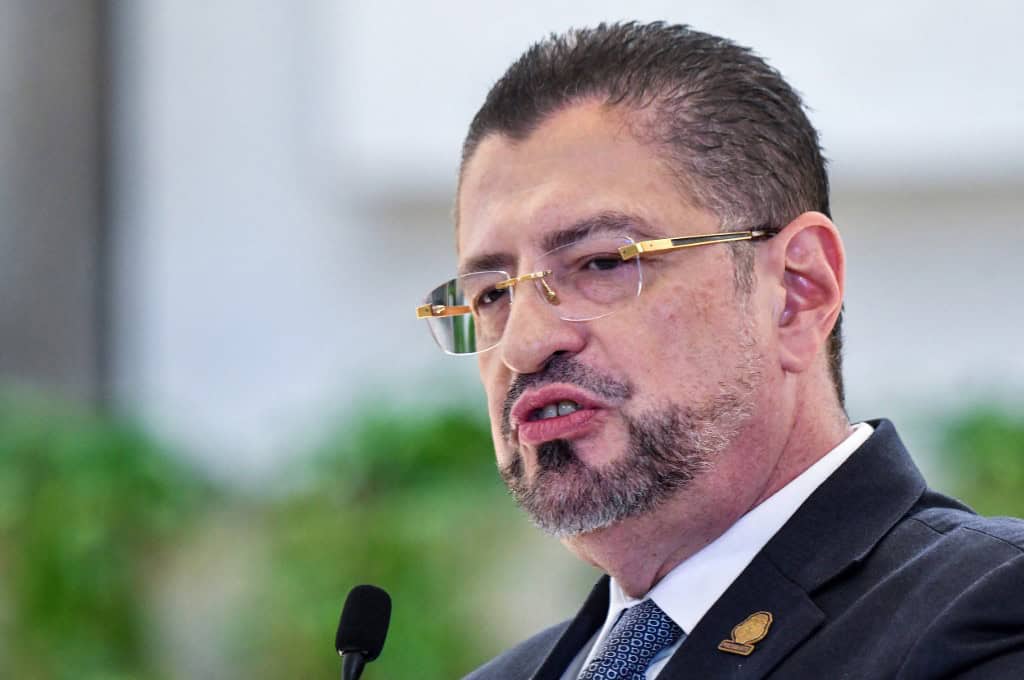Costa Rica President Rodrigo Chaves, in his third annual report to be presented to the Legislative Assembly tomorrow, defended his administration’s security strategy, describing it as “titanic” and asserting that “Costa Rica is recovering peace.” The report structured around nine priority areas—poverty reduction, employment, fiscal stability, health, education, security, infrastructure, foreign relations, and state reform—paints an optimistic picture of national progress. Chaves stated that Costa Rica is undergoing a “profound transformation” and that “change is here to stay.” However, official data and public sentiment reveal a stark contrast, with record-high homicide rates driven by drug trafficking and organized crime.
In his report, Chaves highlighted security achievements, including an increased police presence, enhanced technology in penal facilities, and improved port monitoring to curb drug trafficking. “Security is not an empty promise; it is a commitment we fight to fulfill day by day,” he declared. The administration has implemented measures such as Operation Sovereignty, launched in July 2023 to scan all containers at Moín port, and a historic police wage increase announced in July 2024 to address corruption and boost morale. Chaves also issued an executive decree in October 2024 allowing law enforcement to use automatic weapons in specific situations, aiming to counter heavily armed criminals.
Despite these efforts, Costa Rica’s homicide rates have reached unprecedented levels during Chaves’ tenure. According to the Judicial Investigation Agency (OIJ), the country recorded 907 homicides in 2023, a 38% increase from 2022’s 654, translating to a rate of 17.2 per 100,000 residents. By August 5, 2024, the OIJ reported 521 homicides, a slight 3.36% decrease from the same period in 2023, yet still reflecting one murder every nine hours, or 2.4 per day. Firearms are the primary weapon, and “settling of scores” linked to drug trafficking accounts for roughly two-thirds of these killings, per OIJ director Randall Zúñiga.
The surge in violence is largely attributed to the expansion of local and transnational drug trafficking networks. Costa Rica, strategically located between cocaine-producing countries like Colombia and markets in the United States and Europe, has become a key transshipment and warehousing hub. Disputes over drug territories, debts, and disloyalties within criminal groups have fueled brutal crimes, including executions involving burned, manacled, or decapitated victims. Provinces like Limón, Puntarenas, and San José report the highest homicide rates, with Limón’s rate exceeding 33 per 100,000 in 2023.
Public and official reactions underscore the disconnect between Chaves’ claims and reality. A 2024 survey by the Center for Research and Political Studies (CIEP) found that 41.8% of Costa Ricans view insecurity as our nation’s top issue, up from 13.3% in 2022. Opposition lawmakers, including Rodrigo Arias, president of the Legislative Assembly, have criticized the administration’s response, noting that over 2,000 homicides have occurred since Chaves took office in May 2022. Arias emphasized that while the Assembly has passed 28 security-related laws, executive action remains inadequate.
Chaves has faced additional scrutiny for downplaying the crisis and deflecting blame. In April of 2023, he dismissed the homicide surge as primarily drug-related, and he has repeatedly criticized the judiciary and legislature for hindering security reforms. International cooperation has been a cornerstone of Chaves’ strategy.
In February, during a visit from U.S. Secretary of State Marco Rubio, Chaves secured support for enhanced DEA and FBI collaboration and technology to combat drug trafficking. The death of OIJ officer Geiner Zamora during this visit, killed by criminal elements, underscored the stakes. Chaves called for tougher laws against hitmen and traffickers, stating, “Those who threaten our society must be sent to jail and stay there.”






